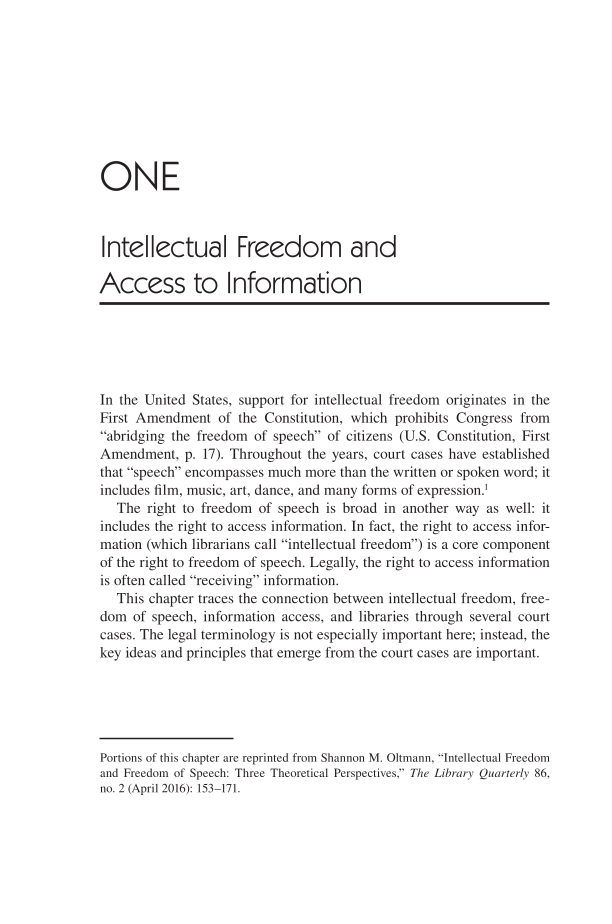ONE Intellectual Freedom and Access to Information In the United States, support for intellectual freedom originates in the First Amendment of the Constitution, which prohibits Congress from “abridging the freedom of speech” of citizens (U.S. Constitution, First Amendment, p. 17). Throughout the years, court cases have established that “speech” encompasses much more than the written or spoken word it includes film, music, art, dance, and many forms of expression.1 The right to freedom of speech is broad in another way as well: it includes the right to access information. In fact, the right to access infor- mation (which librarians call “intellectual freedom”) is a core component of the right to freedom of speech. Legally, the right to access information is often called “receiving” information. This chapter traces the connection between intellectual freedom, free- dom of speech, information access, and libraries through several court cases. The legal terminology is not especially important here instead, the key ideas and principles that emerge from the court cases are important. Portions of this chapter are reprinted from Shannon M. Oltmann, “Intellectual Freedom and Freedom of Speech: Three Theoretical Perspectives,” The Library Quarterly 86, no. 2 (April 2016): 153–171.
Document Details My Account Print multiple pages
Print
You have printed 0 times in the last 24 hours.
Your print count will reset on at .
You may print 0 more time(s) before then.
You may print a maximum of 0 pages at a time.














































































































































































































